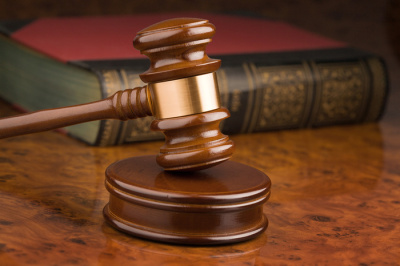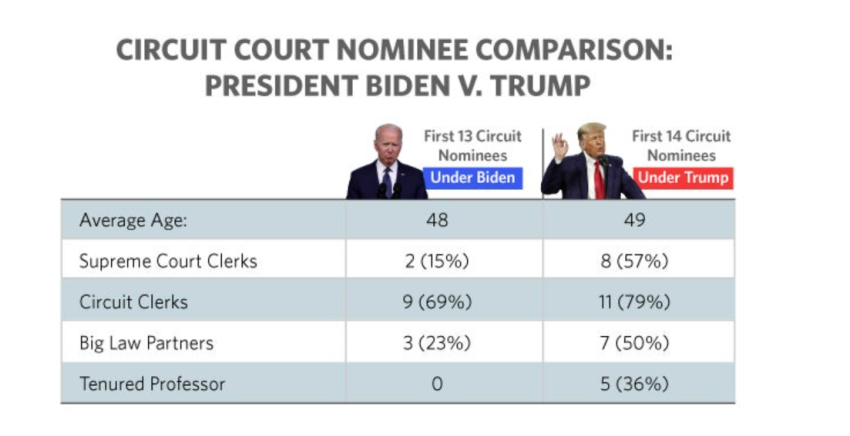How qualified are Biden’s judicial nominees?

Since Inauguration Day, the U.S. Senate has confirmed five of President Biden’s appellate court judges — the most at this point in a presidency since President Nixon.
First Liberty’s legal experts have discussed previously how President Biden has seen a quick start to nominations and confirmations, although it remains to be seen whether he can or will make a lasting impact on the composition of the judiciary.
However, the president was recently presented with two more opportunities to fill seats on the U.S. Court of Appeals for the Second Circuit, currently comprised of six conservative-appointed to five liberal-appointed judges.
Last week, Second Circuit judges José Cabranes and Rosemary Pooler, both appointed by President Bill Clinton, announced they’d take a form of semi-retirement known as “senior status” effective upon the confirmation of their successors.
Why are these two recent vacancies significant? Because President Biden could be on the verge of shifting the balance of judges on the Second Circuit.
Biden has moved quickly to fill three existing vacancies on the Second Circuit, which has 13 judgeships. That included replacing one of President George W. Bush’s appointees. Two other nominees are pending with the U.S. Senate. One of them, Myrna Perez, is awaiting a confirmation vote, which could happen in the coming weeks.
However, two additional openings give the President a total of four spots to fill. If he successfully fills those slots, it could have a couple impacts at the Second Circuit:
- Flipping the court back to a Democrat-appointed majority
- Biden judges would make up five of 13 judgeships
It’s clear President Biden does have a chance of impacting the composition of at least one appellate court in the near future. But as he looks at putting forward more judges, it’s worth asking: How qualified are Biden’s nominees for these critical lifetime judgeships?
Less depth on the bench? The gap between Biden and Trump nominees
According to data from the U.S. Senate Judiciary Committee, it appears there are significant differences in the qualifications of President Biden’s circuit court nominees compared to those of his predecessor, President Trump.
The chart below shows a side-by-side comparison of approximately the first dozen Trump and Biden nominees to the appellate courts. It includes important factors, such as Supreme Court and appellate court clerkships, as well as relevant professional and legal experience:

Additionally, consider the following from a previous judicial analysis First Liberty conducted. Last year, our legal experts found that among Trump appellate nominees:
- Forty percent clerked for a Supreme Court justice, while 80% clerked at a federal appellate court. That compares to less than 25% of President Obama’s nominees who clerked on the Supreme Court, and less than 50% with federal appellate clerkship experience.
Although both Biden and Trump nominees are of similar ages, there’s a stark contrast in many of their qualifications. But there’s another critical difference not reflected in the chart above.
The gap between President Biden’s and Trump’s nominees is also evident when one considers what each of them prioritized when selecting and vetting candidates for the federal bench.
The Trump administration focused on vetting nominees according to their judicial philosophy and selecting originalists who would interpret the Constitution according to its plain original meaning and text.
On the other hand, President Biden seems to be placing greater emphasis on identity politics when selecting federal judges. From the beginning, the Biden administration has openly touted that its policy agenda is to “restore balance” to the judiciary via “diversity.”
There’s nothing inherently wrong with championing diversity on the judiciary. However, the Biden administration’s approach so far has given priority to those candidates who meet selected intersectional standards on race and sexual orientation — while sharing a liberal or activist approach to the law.
There’s still time in President Biden’s tenure and more vacancies are likely to come up. So, in fairness, it remains to be seen how the qualifications of his entire “class” of judges (district and circuit) will compare, once his presidency ends.
Nonetheless, when it comes to the credentials for a nominee to be qualified and “fit” for a lifetime judgeship, President Trump’s picks appear to have set a very high bar. And if President Biden is looking to claim a positive and lasting differentiation between him and his predecessor, he could be facing an uphill climb.
Originally published at First Liberty.
Jorge Gomez is the Content Strategist and Senior Writer for First Liberty Institute. He has previously worked as a communications and messaging strategist for faith-based nonprofits and conservative policy organizations. He holds a degree in political science from the University of Central Florida and a master’s degree in public policy from Liberty University.



























